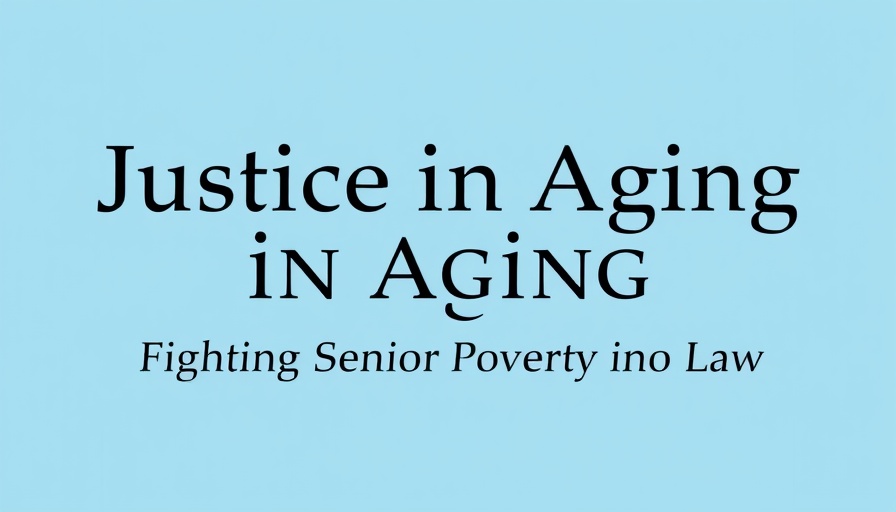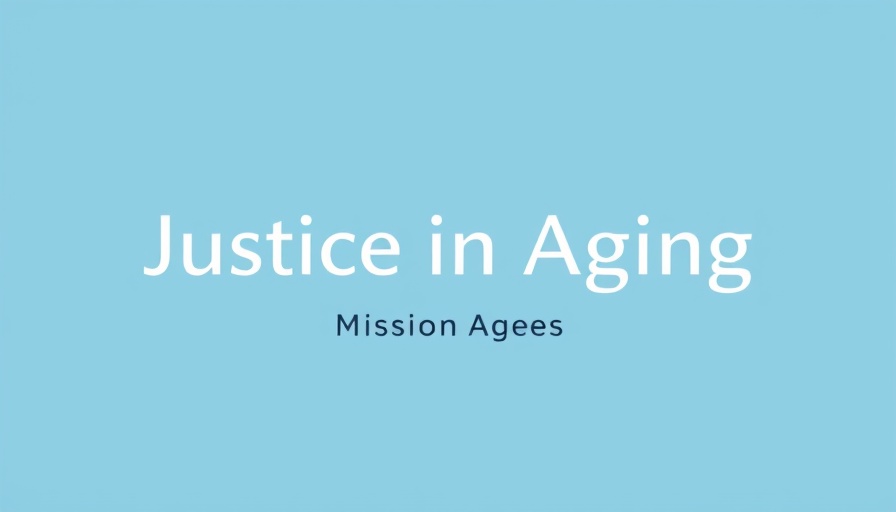
Concerns Rise Over ACL's Planned Dissolution
The shock announcement from the Department of Health and Human Services (HHS) to eliminate the Administration for Community Living (ACL) has sent shockwaves through the senior community. This agency has been a pivotal player in supporting older adults and people with disabilities, facilitating services that allow them to thrive independently in their communities. The decision to dismantle ACL raises pressing questions about the future of these essential services.
The Vital Role of ACL in Senior Care
Established to ensure that older adults receive the support needed for a healthy and independent life, the ACL oversees crucial programs such as the Administration on Aging and the Administration on Disabilities. By absorbing these services into other HHS offices, there are growing fears that specific needs of older adults will be sidelined. These fears are underscored by a lack of detailed guidance from HHS on how care and support for older adults and people with disabilities will be maintained amidst substantial workforce cuts, including the dismissal of 10,000 employees.
Potential Consequences for Seniors and Families
The dismantling of the ACL threatens to strip older adults of essential services. Many may find themselves forced into institutional care settings, a far cry from the independence that community living offers. With access to essential services like Adult Day Programs, transportation, legal support, and caregiver resources severely impacted, the quality of life for countless seniors hangs in the balance.
Understanding the Broader Implications
This move is part of a concerning trend toward reducing support for older adults and individuals with disabilities. Several agencies that provide vital oversight and assistance—such as the Social Security Administration and the Consumer Financial Protection Bureau—have either been significantly weakened or utterly dismantled in recent years. Additionally, proposed Congress cuts to Medicaid and the cessation of research funding for Alzheimer’s disease hint at a continuing erosion of the safety net for older Americans.
Voices from the Community
Reactions from seniors, families, and advocacy groups highlight the deep anxieties surrounding these developments. Leaders in elder rights have voiced their concerns, highlighting the potential for increased financial exploitation and a significant loss of quality of care for vulnerable populations. As families grapple with the impending losses, many are left searching for answers, resources, and a viable path forward.
Moving Forward: Strategies for Advocacy
In these uncertain times, advocacy plays a crucial role. Seniors and their families are encouraged to engage with local community organizations and policymakers to express their concerns regarding the planned changes. It is imperative to raise awareness and push for the continuation of services that keep older adults healthy and active participants in their communities.
Community Support: What You Can Do
Individuals can help sustain community resources by participating in local advocacy groups, attending public demonstrations, and utilizing social media platforms to spread awareness about the importance of retaining agencies dedicated to elder care. By working together as a community, we can amplify the call for maintaining essential services and influence policy to protect our most vulnerable citizens.
In conclusion, the proposed elimination of the Administration for Community Living represents a critical threat to the well-being of older adults and those with disabilities. The combination of reduced funding, workforce cuts, and the dissolution of supportive agencies creates a perfect storm affecting the quality of life for seniors across the nation. It is essential to unite in advocacy for protective measures, ensure voices are heard, and hold authorities accountable to safeguard what is rightfully owed to our older generations.
If you are concerned about these developments and want to take action, consider contacting your local representatives to express your views or get involved with advocacy groups that support senior services. Every voice matters in this vital conversation.
 Add Row
Add Row  Add
Add 




 Add Row
Add Row  Add
Add 

Write A Comment